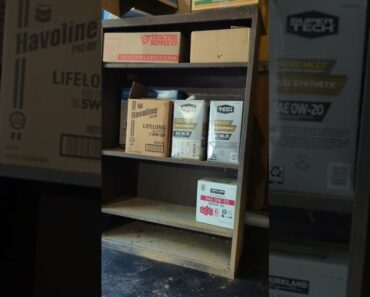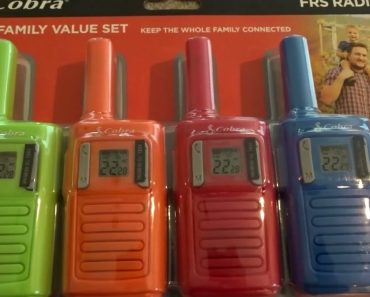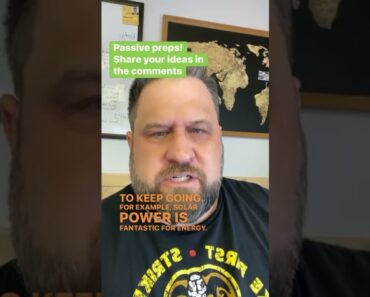We, humans, are nothing more than evolved animals, and there’s no point in debating which of us is more evolved or feral. We do possess some unique abilities like reasoning, self-reflection, and compassion, but the truth is that we still have some animalistic instincts, similar to other creatures in the wild.
We did manage to develop civilizations, we established laws, and we are governed by morality and the understanding of what being human means, but it can all change when dealing with extreme circumstances. In fact, it was proven that humans would often revert to their primal instincts during stressful situations in order to fulfill their basic needs. These individual needs concerning, mainly food, water, and shelter, have often induced people to do things that the current civilized man considers unacceptable.
Throughout history, people resorted to cannibalism to satisfy their need for nutrition, while others restored to blind rage to eliminate enemies that were posing a threat to their security (regardless of their nature). During wartime, soldiers will eliminate all perceived threats, even though some of these targets do not pose a real threat to them.
While the topic of human nature and the action of our peers under various circumstances and in various environments is a complex topic, I do believe we need to focus on a topic that is often ignored in the prepping world, the exposures of preppers to the animalistic inclinations of the “unprepared.”
As I said before, I firmly believe that when facing a SHTF event, the cataclysmic incident may not pose the biggest threat but rather the behavior of the social elements living in the affected area.
Should you trust people?
A lot of folks like to perpetuate the old saying that states there’s “safety in numbers,” and even if it may hold some truth in certain cases, I believe it becomes irrelevant when resources become scarce, and people are competing for the same survival needs. As we have seen in our recent history, scarcity leads not only to a decline in morale but also to the rapid degradation of society and its governing rules. We’ve all seen how during the COVID pandemic, a lot of people had trouble deciding if they should keep following the moral standards of their society or give in to their survival instincts.
I’ve been a “thoughtful” prepper for more than a decade now, and I’ve tried to teach people about the importance of emergency preparedness as well as I could. I had the pleasure to interact with people from all fabrics of society, and every time I was asked what would be the single piece of advice I could give to both new and old preppers, I always said the same thing, “trust few, involve even fewer”.
I’ve noticed there’s a certain pride going around in the prepping community, and people love to show off their collection of food, guns, and gear. I do understand the need to take pride in your own work, but isn’t it safer to stay under the radar? What people are doing is just advertising their well-stocked homes and vehicles, and when the brown stuff hits the fan, they will have a hard time keeping freeloaders at bay.
How often have you seen on social media nutjobs saying they don’t need to stockpile anything because they have enough “guts” and firepower to take whatever they need from others? Do you think these people will not seize any opportunity presented in their way to fulfill their survival needs when a SHTF event occurs?
If you don’t keep it to yourself and keep showing everyone on the internet how much food and water you’ve got, all the preparation you’ve put into becoming self-sufficient will be in vain, and you only make it easier for others to target you. A gun pointed at your kids’ heads is all it takes to lose it all. All your years of planning and preparation, collecting whatever you believe is necessary to survive the apocalypse, will put you and yours in danger if you don’t keep it all a secret.
The lack of resources affects people more than you know
Some people become irritable and short-tempered when they skip a meal, and we all know a few folks like that. But what happens when you go a few days, or even a week, without food?
Well, as demonstrated by various survival stories, mood and mentality are significantly affected, and people would eventually fall into two main categories, victims and survivors.
When days pass without food, some will just give up, while others will do everything in their power to procure some food, ignoring what the consequences of their actions can mean for everyone around them. Their mood changes constantly and swifts more and more towards anger, and they end up becoming violent, sparing nothing and no one.
One such popular “survival story” is the case of R v. Dudley and Stephens, and although this case predates the 2000s, it is often referenced in discussions of survival cannibalism. In 1884, four shipwrecked sailors were adrift at sea without food or water. After several days, three of the sailors killed and consumed the fourth crew member, Richard Parker, in order to survive. When they were rescued, they were charged with murder. The case raised ethical and legal debates regarding the defense of necessity in extreme circumstances.
The bottom line is that you simply cannot predict how the lack of resources will affect people, especially those who could be an immediate threat to you and yours, like your neighbors. And if we are to be as realistic as possible, we should also acknowledge the fact that there are certain individuals out there that have other “survival needs” as well, besides food and water.
Those that are addicted to drugs and alcohol will do whatever they can to get their next fix. Some of these less desirable elements of society are already hurting people now, in times of peace. Imagine what they would be capable of doing when there is no longer a governing law, and it will be every man for himself.
Don’t stand out and try to blend in
If you live in a danger zone, which is basically any densely populated area, you will need to take certain precautions to make sure you don’t stand out, and you need to keep your supplies hidden. Only by doing so will you avoid becoming a target for the unprepared, regardless if they are looking for food and water or vice goods.
The first thing people will need to do is stop carrying bulky bags filled with essential or non-essential items that others may perceive as valuable. We all have a bug-out bag, a get-home bag, or a survival kit, but few of us carry it everywhere and parade it to satisfy that pride thirst. Things can change in a matter of minutes, and a non-violent crowd can turn into an angry mob if they believe you possess the resources they need.
I advise people to find discreet ways to carry the stuff they need to survive and look into the EDC movement and the tips like-minded people provide, allowing you to keep survival items out of sight. If you carry a gun and a survival kit in your car, keep them hidden and make sure they are hard to be reached. If you carry a get-home bag, make it as inconspicuous as possible, and rather than using an army backpack, try to employ a beat-up backpack for your needs.
Also, try to blend in with the people around you, and don’t wear gear that would advertise your beliefs and ideology. If people in your environment don’t share the same values as you, your apparel may trigger scrutiny from others, and you will become a target. And let’s be real; a single person has little to no chance of surviving a violent crowd. Adopting a low-profile attitude will help you navigate a hostile environment.
Always bet on self-preservation
Self-preservation is a valuable tool, and it helped humans survive during the most difficult of times throughout history. Today, the reality is quite different, and our self-preservation spirit is often suppressed by our environment and the abundance of goods and services.
While self-preservation heightens your senses and helps you avoid potentially dangerous situations, it can also put you in harm’s way if you’re used to living in a “safe environment”. People nowadays mostly look for help rather than helping themselves. We see this every day, and for example, during an active scenario, people will run to others for help since there’s safety in numbers or hide and wait for someone to come and rescue them.
Self-preservation and situational awareness go hand in hand, and when both instincts are dormant, the end result is often a tragic one. By taking into account the same active shooter scenario, we often see people trying to film the entire thing rather than extracting themselves from the dangerous environment. People are doing the exact opposite thing they should be doing. They hear loud noises, and they go towards the place of origin to see what the commotion is all about rather than doing the opposite thing.
It is true that you should fight for your life when no other option is available, but it’s also true that you should be doing everything in your power to avoid placing yourself in that situation in the first place. Everything is on social media nowadays, and everyone wants to be a “reporter.” People go looking for fame in all the wrong places rather than relying on common sense and self-preservation.
Avoidance is key
Avoid confrontations, avoid dangerous environments, and keep it to yourself. In a survival scenario, avoidance is the key to your survival.
Preppers and survivalists have an ongoing debate on which scenario would prove more successful when the proverbial brown stuff hits the fan. Some believe that hunkering down and defending the castle is the way to go, while others will take their chances on the road and bug out. The main thing that both parties often seem to disregard is that avoidance is their best bet in both cases.
Even if you fortify your home and you have the resources to survive for an extended period of time, keeping a low profile and avoiding people as much as possible will increase your survival chances tenfold. But let’s say you do have the option to bug out, and you have a safe haven ready and waiting for you; even in such a case, you should consider that seeking refuge in an area where there are fewer people is the main way to go. The fewer the interaction with fellow humans, the lower the risks of you becoming a victim.
Now regardless, if you opt to take your chances on the road or stay at home, you must understand that all the factors listed above should work in conjunction. The environment does play an important role in your survival, but the actions you take are the decisive factor.
I do agree that being far away from society is the best course of action during a SHTF scenario, but even if you are surrounded by fewer people, you’re still not out of the woods, sort of speaking. Avoid conflicts because those fewer people could form an alliance against you and may forcefully take what you stockpiled. Keep everything hidden and try to blend in with the locals.
How about the good people?
This article is not meant to convince you that going the “lone-wolf” path is the right way to go or that the “safety in numbers” approach is the right one. It is also not meant to persuade you into believing that everyone out there is an enemy. We prepare for what we believe will be the downfall of our society, and we always hope for the best since there’s no way to predict the future.
My grandfather used to say that no matter what others will say and want you to believe, there is no way to truly know a person, and you won’t know what someone is made of until they are faced with a life-changing decision. As said before, at our core, we are still animals, and our lives, just like the lives of animals, are influenced by the environment and our own decisions.
That being said, I do believe there are still good people out there, and even though I encourage people to remain vigilant at all times, I also tell them that it’s important not to forget about our humanity. There are good-hearted people out there, and if you’re lucky to meet them, it’s a good idea to keep them close. In time, maybe you will be able to include them in the “involve fewer” category.
I also encourage people to connect with others who share the same beliefs and are equally prepared. Making an alliance with like-minded people may come in handy if you live in a densely populated area, regardless if you decide to pool resources or evacuate together.
Having acknowledged this truth, you can now devise intelligent strategies and carefully chart your course of action to the best of your capabilities. It is essential to bear in mind that you have dedicated significant time, be it months or even years, to readying yourself for unforeseen circumstances. It would be unfortunate to squander all your diligent efforts by neglecting the fundamental element of survival: self-preservation. As you strive to endure, it is vital to recognize that others will be driven by the same instinct and determination.




























